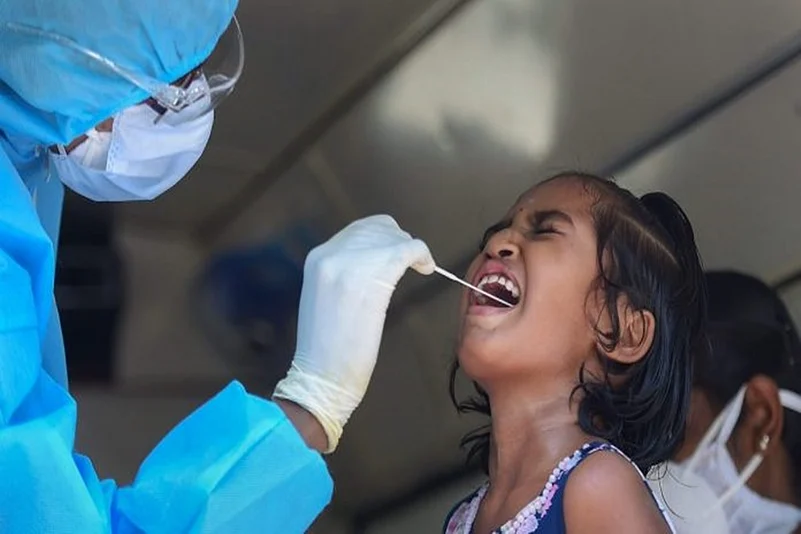The Ministry of Home Affairs’ expert panel has recently predicted that the third wave of COVID-19 would hit the country anytime between September and October.
However, Dr Samiran Panda, Head, Epidemiology & Communicable Diseases Division of the Indian Council of Medical Research (ICMR) has dismissed all these predictions and said that any speculation for any new wave for the whole of the country is incorrect.
Dr Panda spoke to Outlook and said that the spread of infection during the second wave was not evenly distributed in every district in the country.
That’s why, according to him, districts, where the spread was low, might experience an increase in the number of infections whereas those districts that reported high infection in the second wave will not witness a peak as high as that of the second wave.
The ICMR and Imperial College of London, in a collaborative effort, have worked out a model called CHROMIC to project the future spread of infection of the virus in India. It is called a Collaborative Health Research on Modelling IC where IC stands for both Imperial College as well as ICMR.
Dr Panda says that according to the CHROMIC Model states like Delhi, Maharashtra, Uttar Pradesh, etc, where the second wave had infected a large number of population, cannot witness any third wave as big as the second one.
“There might be an increase in the number of cases in these states but it will not be like the second wave,” He said.
The MHA’s expert panel is not the first government agency that predicted the third wave in the country. A section of government health experts have time and again raised such conjectures about the third wave without giving any scientific basis for it.
The talk of the third wave made headlines for the first time in May when the country was battling with a devastating second wave. India’s scientific advisor Prof K. Vijay Raghavan had then said in a press conference that the country would face a third wave with possibly high mortality among children.
Prof Raghavan never gave any scientific reasons that why and how it would happen. Since then, many government experts like Dr Randeep Guleria noted pulmonologist and the director of the All India Institute of Medical Sciences, New Delhi had made almost a similar statement.
In the middle of June, Dr Guleria had said that if Covid appropriate behaviour was not followed and crowding was not prevented, the third wave could strike the country in the next six to eight weeks.
Dr Panda says that five factors are important for any wave. These are (a) Decline in the natural or vaccine immunity of an individual (b) Emergence of a new variant with an ability to escape the existing immune profile on a population (c) Emergence of a new variant that has high infectivity or transmissibility one like Delta Variant (e) Relaxation in lockdown without enforcing appropriate Covid behaviour or increased vaccine coverage in those areas which were least affected in the second wave (f) A sudden increase in population density in any area such as tourist destinations that can give an opportunity for the virus to spread.
“So far as India is concerned, the last two factors are important. If we can see a rise in daily active cases, it could be due to these two factors only,” Dr Panda said.
He added, “States like Himachal Pradesh and North-Eastern areas that effectively contained the spread of infection during the second wave by imposing strict lockdown, have experienced an increase in numbers after they unlocked. It is because they failed to enforce Covid appropriate behaviour. Also, the vaccine coverage is not that high.”
















